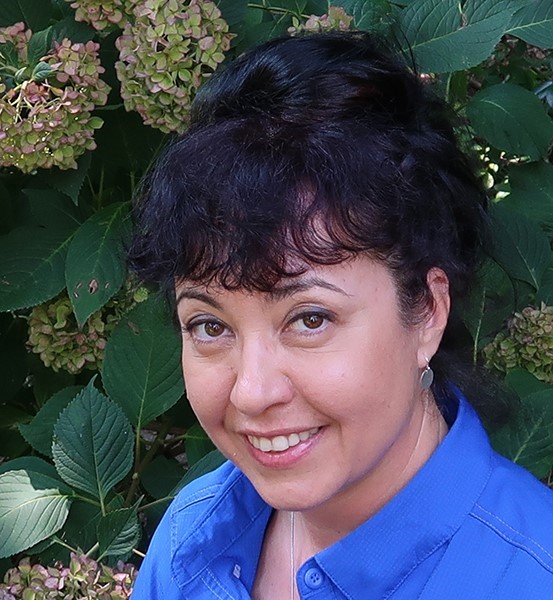Bodie V. Pennisi
Vincent J. Dooley Professorship in Horticulture; Emphasis: Commercial & sustainable landscape; pollinators Horticulture
Own this profile? Request changes

UGA Griffin Campus
Dr. Pennisi is an Extension Horticulture Specialist in the Department of Horticulture at the University of Georgia. She received her Master of Science in 1996 and Doctoral degrees in 1999 from Environmental Horticulture Dept. of University of Florida in Gainesville. She joined the Horticulture Department at UGA in 2000. Until 2010, Dr. Pennisi served the floriculture industry. Currently, she has statewide responsibilities for the Georgia landscape industry.
Dr. Pennisi also teaches online courses, HORT3440E Herbs, Spices, and Medicinal Plants, and HORT4430/6430E Plant Physiology.
Programmatically, Dr. Pennisi is responsible for planning and coordinating a statewide Extension program to support the professional landscape industry, and conducting applied research with emphasis on sustainable outdoor and indoor landscapes including plant, water, nutrient, and soil interactions. She also assist county Extension agents with landscape trouble-shooting, landscape planning, and local programming when needed. Dr. Pennisi teaches Master Gardener training classes on landscape installation and maintenance, WaterSmart landscapes, interiorscapes, herbaceous and woody ornamental plant selection, plant propagation and plant physiology.
Dr. Pennisi serves as educational advisor to the Georgia Green Industry Association (GGIA), the Urban Agriculture Council (UAC), and the national non-profit organization Green Plants for Green Buildings (GPGB). She serves on the environmental committee of the National Initiative for Consumer Horticulture (NICH). Dr. Pennisi also serves on the board of directors of the Griffin Region College and Career Academy (GRCCA).
Dr. Pennisi is a Co-Editor-in-Chief of Scientia Horticulturae.
Research Areas
Evaluation of Ecosystems Services of Ornamentals Plants
The landscape industry and the public have become increasingly concerned about protecting pollinator health by reducing pesticides and providing habitats most conducive to promoting insect biodiversity and abundance. In addition, our clientele cares about the spread of invasive plants and increasingly seeks native species alternatives which could provide landscape benefits. Most annual bedding plant species and many perennial species are bred for floriferousness and adaptability to perform in urban landscapes. However, research has shown that cultivars specifically bred for ornamental purposes have lower numbers or species diversity of visiting insects, due to modifications in flower morphology, such as multiple petals and spurless flowers. Therefore, the right combination of species in the landscape, one which provides superior aesthetics, is adapted to the local environment, and offers ecosystem services is of intense interest. This research has multipronged approach: systematic evaluation of existing ornamental species and their associated pollinators and biological species; evaluation of species for which anecdotal information for insect attractiveness exist and /or species not evaluated in southeastern landscapes; surveys of real-life commercial landscapes in addition to research trial gardens; and evaluation of the effectiveness of various insect habitats.
Effect of Environmental and Cultural Factors on Biodegradation of Plantable Containers and Microbial Inoculants on Plant Growth
Plantable biocontainers which can be directly installed in landscape and decompose readily in the soil have provided alternatives to standard plastic containers both in production and in the landscape. They offer labor savings and reduction in plastic outputs. Yet, their adoption is not wide, partly due to limited data on plant growth, and also incomplete decomposition in the landscape. Rate of container decomposition is essential to this process and must occur fast enough to prevent disruption of root and plant growth and establishment yet decompose completely by the end of the six-month landscape rotation cycle. Soil factors and cultural practices including nitrogen fertilizer application, soil type, soil pH, soil amendment, and soil microorganism inoculation, can affect biodegradation. This research aims to provide information on the impact of cultural and environmental factors on degradation of plantable biodegradable containers in native soils and under conditions designed to simulate Georgia landscape environments. With the use of biocontainers on the rise, research is needed to remove the impediments to wider adoption of these alternative containers so that the consumer (public, legislative bodies, etc.) views the green industry as a sustainability-conscious industry.
Appointments
- 20% Teaching
- 75% Extension
- 5% Service
Teaching
- HORT3440E Herbs, Spices, and Medicinal Plants
- HORT 4430E/6430E Plant Physiology
- HORT4770E/6770E Discover the Wonderful World of Plants and Pollinators and Your Place in It
- HORT 6070 Special Problems in Horticulture
Education
- M.Ag., Viticulture and Gardening, Higher Institute of Agriculture, Bulgaria, 1993
- M.S., Environmental Horticulture, University of Florida, 1996
- Ph.D., Environmental Horticulture, University of Florida, 1999
